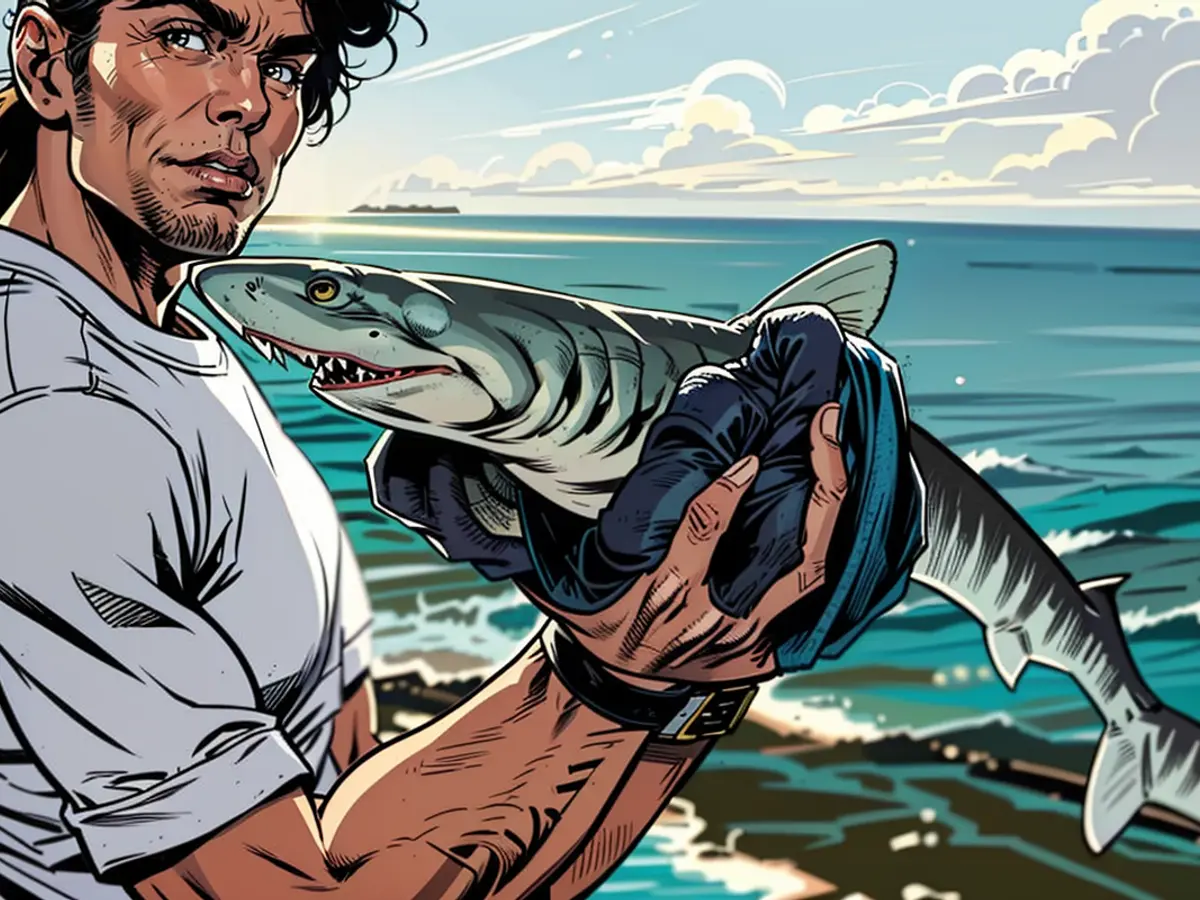He tried cocaine for the first time positively
In Rio de Janeiro, researchers found Cocaine in Sharks for the first time. The source of the drug and its potential consequences for the animals are still being investigated. However, there are already initial suspicions.
Normally, it's humans who are caught with drugs. In the Brazilian coastal metropolis Rio de Janeiro, sharks have now been found to test positive for Cocaine for the first time. According to a study published in the journal "Science of The Total Environment," Cocaine was detected in the liver and muscles of 13 Bull Sharks (Rhizoprionodon lalandii).
"In Brazil, studies have already shown the contamination of water and certain aquatic organisms, such as mussels, with Cocaine. Our analysis is the first to find the substance in sharks," explains Pharmacist Enrico Mendes Saggioro, who, along with Biologist Rachel Ann Hauser-Davis, is responsible for the discovery. Sharks, according to the Biologist, play a central role in the food chain in the marine ecosystem. Damages to the environment, including various forms of pollution, can be detected through them.
According to the latest World Drug Report, published by the United Nations Office on Drugs and Crime (UNODC) in 2024, Brazil is one of the largest consumers of Cocaine globally. Researchers believe that the drug mainly enters the sea through the disposal of Cocaine wastewater. They also point to the large amount of drugs consumed in the city.
To determine the exact consequences of Cocaine contamination for the animals, specific studies are required, which do not yet exist. "It's suspected that it affects their growth, maturation, and possibly fertility, as the liver plays a role in embryonic development," says Biologist Hauser-Davis.
The discovery of Cocaine in sharks in Rio de Janeiro highlights the wider issue of environmental pollution in Brazil. Previous studies have shown Cocaine contamination in water and aquatic organisms like mussels, indicating a larger problem.
Given the central role of sharks in the marine ecosystem, any harm to them, such as drug contamination, could have significant impacts on the environment. For example, Biologist Rachel Ann Hauser-Davis suspects that Cocaine might affect shark growth, maturation, and fertility.
Brazil's status as a significant global consumer of Cocaine, as per the UNODC's World Drug Report, could be one of the reasons behind the drug's presence in its coastal waters and marine life. Hedges surrounding drug-processing labs might inadvertently contribute to the dispersal of Cocaine wastewater into natural water bodies, further exacerbating the issue.







